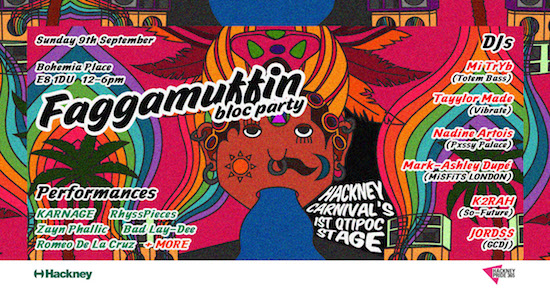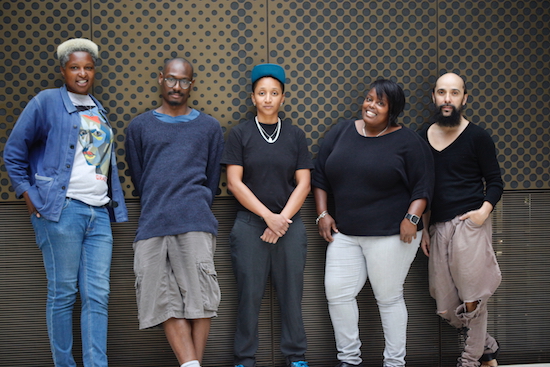Caribbean Carnival is more than your everyday festival. It’s not just Glastonbury with added melanin, or Lovebox with real soul. Carnival is a uniquely Caribbean celebration. It is a legacy of enslavement, resistance, liberation, dispersal and homecoming that speaks of the history of a people, of islands that changed our world. On emancipation, having been excluded from the slave owners’ ostentatious masquerade balls, enslaved Africans, indentured Indians, and dispossessed Native Americans transformed a pagan-turned-Christian festival into a celebration of freedom and a new creole culture. It was a celebration in which echoes of tribal beats reverberated in new contexts. This was a freedom so precious to a people that its celebration has travelled with them to cities around the world, announcing their presence, reclaiming their liberty.
When racists sought to run black people out of their new homes in 1950s’ Notting Hill with violence reminiscent of their slave-owning forebears, Carnival, again, was a rallying moment. It was the genius of Claudia Jones – a Trinidad-born journalist and activist who founded Britain’s first major black newspaper – who created a powerfully Caribbean, and quintessentially British, moment of defiance by organising the UK’s first ever Mardi-Gras-based carnival in 1959.
This inspired towns and cities across the UK to do the same, and by the 1970s, Hackney had contributed to this legacy, establishing a Carnival in the Caribbean tradition with the addition of British Jamaican sound system culture and reflecting the unique mix of people that make up London’s new East End.
I arrived in Hackney eight years ago, a queer Bermudian-Jamaican woman looking for home. Initially, I looked for community in all of the wrong places, losing myself in the seemingly endless unwritten rules and structures of the city. I wanted to feel at home, but simply couldn’t.
Then, two years into my East End odyssey, I found a queer community that welcomed me home and I never looked back. I started working in a cabaret pub and was fascinated by how much there was to learn about my new compatriots – drag queens, drag kings, burlesque, gender non-binary partying. Yet this was just the tip of the iceberg.
I met people who taught me about the importance of challenging the norms that don’t work for us, acknowledging different gender, racial and sexual identities, respecting the ways people choose to describe themselves, and avoiding cultural appropriation. I felt like a rabbit caught in the fluorescent shiny disco lights. Then in a moment of clarity, I saw that while London’s queer scene was new to me in so many ways, I recognised the quest for authentic celebration of identity in my Caribbean roots.
I also recognised a similar desire for resistance. London is a wonderful city and Hackney was becoming home. Home, despite the persistent patterns of homophobia and transphobia that sees hate crime and fear of violence haunt queer communities.
Home, in the face of racism that sees black people over-surveilled and under protected by police, repeated patterns of under employment for black and brown people across generations, and a hostile environment for migrants that has seen fellow Caribbeans made effectively stateless for the sake of a few favourable headlines to support the careers of too-distant politicians.
I have witnessed people start to organise to reclaim their agency, just as the emancipated former slaves in the Caribbean did in response to serial injustice. In online communities and on-land, people in my new home have been creating spaces, by and for, queer black and brown people across London.
Several nights that centred and prioritised Queer and Trans People of Colour (QTIPOC) have started to emerge. Nights like BBZ, Goldsnap, Pxssy Palace, Cocoa Butter Club, Mariacumba and Batty Mama have been radical interventions in clubland: not only in what they were
creating, but how they were created.
UK Black Pride has been claiming its space with ever more confidence. AZ Magazine and BlackOutUK have begun to create authentic spaces online beyond the white gaze. They are creating spaces that are safe, accessible, and owned by QTIPOC. Trying to create spaces that are specific to a demographic of people that have been marginalised for too long is not the easiest path, but increasing numbers of people have begun to see the benefit of the additional effort.
Eschewing the glibly labelled ‘urban’ event that commodifies the pink and black pound, and rejecting the spaces that can perpetuate the inequalities in control that enable the violence and discrimination that we are seeking refuge from, has become a mission for many and a task crucial to our shared futures.
Creating these spaces is a result of a search for authenticity, rather than exclusivity. Spaces that respond to the needs of people in the QTIPOC community are finally being created.
Faggamuffin Bloc Party at Hackney Carnival, on Sunday 9th September, is being created to share in the carnival vibe that is part of our heritage, and reflects our desire to make a more visible contribution to the legacy of the communities of which we are part.
Working with the local council’s Hackney Pride 365 initiative, Hackney’s QTIPOC community group agreed that it was high time to take this opportunity to stake a claim to a space that has been too long denied, in a manner that is completely unapologetic and at the centre of a borough-wide celebration of Caribbean tradition.
Caribbean Carnival is more than an everyday festival and Faggamuffin Bloc Party more than just another sound system, it is a reclaiming of a tradition of resistance and liberation through celebration by and for queer people of colour. It will be a celebration at which echoes of those tribal beats, inherited via the Caribbean, will reverberate in a new context: a celebration of freedom that is precious to us as black and brown people and as queer people. For me, it will be a homecoming: a space to be authentically me, and to celebrate the new us.
Faggamuffin Bloc Party takes place as part of Hackney Carnival on Sunday, 9th September, at Bohemia Place, Hackney Central, from 12 noon to 6pm. More info here



